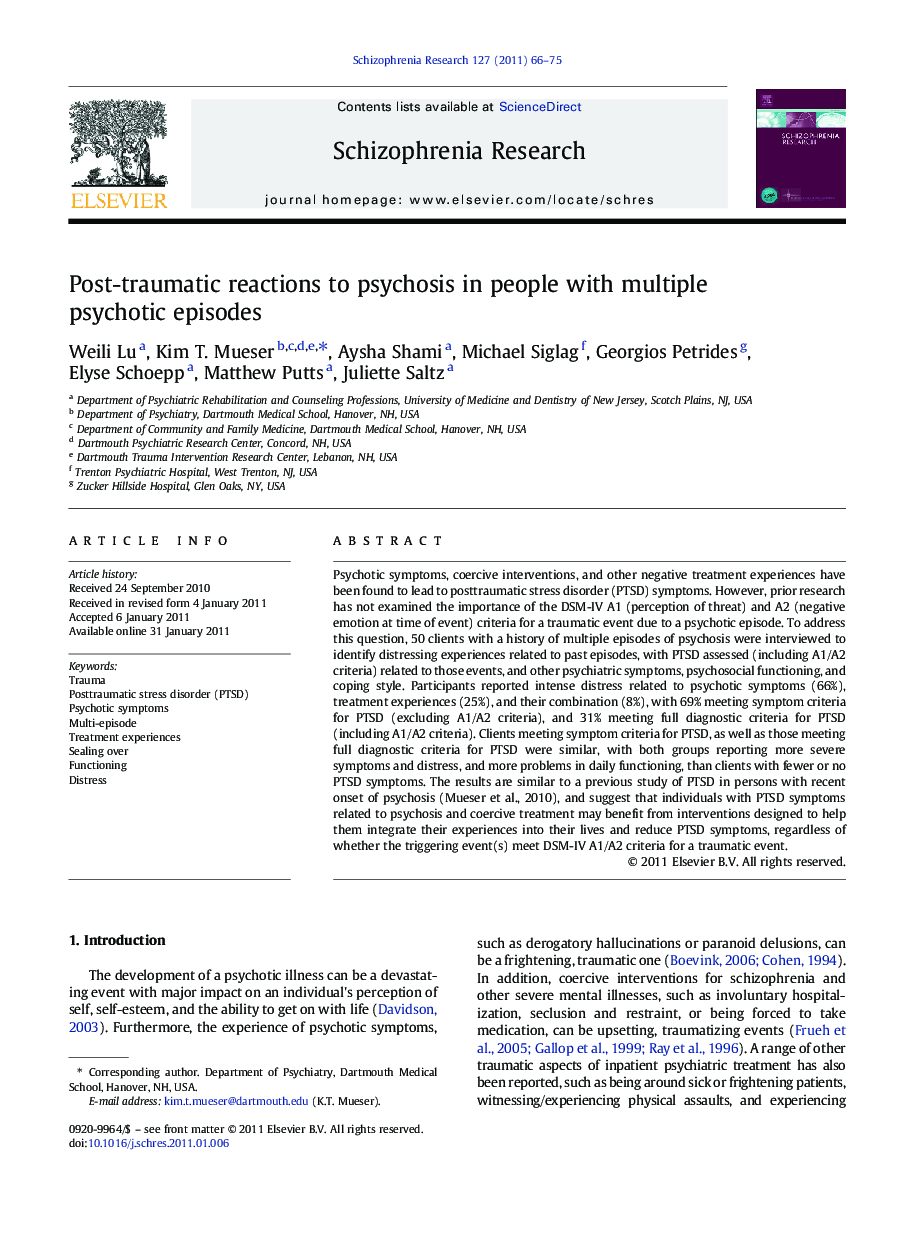| Article ID | Journal | Published Year | Pages | File Type |
|---|---|---|---|---|
| 6827684 | Schizophrenia Research | 2011 | 10 Pages |
Abstract
Psychotic symptoms, coercive interventions, and other negative treatment experiences have been found to lead to posttraumatic stress disorder (PTSD) symptoms. However, prior research has not examined the importance of the DSM-IV A1 (perception of threat) and A2 (negative emotion at time of event) criteria for a traumatic event due to a psychotic episode. To address this question, 50 clients with a history of multiple episodes of psychosis were interviewed to identify distressing experiences related to past episodes, with PTSD assessed (including A1/A2 criteria) related to those events, and other psychiatric symptoms, psychosocial functioning, and coping style. Participants reported intense distress related to psychotic symptoms (66%), treatment experiences (25%), and their combination (8%), with 69% meeting symptom criteria for PTSD (excluding A1/A2 criteria), and 31% meeting full diagnostic criteria for PTSD (including A1/A2 criteria). Clients meeting symptom criteria for PTSD, as well as those meeting full diagnostic criteria for PTSD were similar, with both groups reporting more severe symptoms and distress, and more problems in daily functioning, than clients with fewer or no PTSD symptoms. The results are similar to a previous study of PTSD in persons with recent onset of psychosis (Mueser et al., 2010), and suggest that individuals with PTSD symptoms related to psychosis and coercive treatment may benefit from interventions designed to help them integrate their experiences into their lives and reduce PTSD symptoms, regardless of whether the triggering event(s) meet DSM-IV A1/A2 criteria for a traumatic event.
Related Topics
Life Sciences
Neuroscience
Behavioral Neuroscience
Authors
Weili Lu, Kim T. Mueser, Aysha Shami, Michael Siglag, Georgios Petrides, Elyse Schoepp, Matthew Putts, Juliette Saltz,
